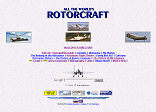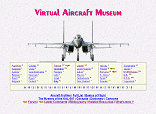 |
WESTLAND AIRCRAFT LTD. |
 |
| UK |
Petters Ltd, an engineering company founded 1910, undertook government aircraft construction in 1915 as Westland Aviation Works at Westland Farm, Yeovil, Somerset. Produced Short 184, Short 166, Sopwith 1 1/2-Strutter, Airco D.H.4, and D.H.9 biplanes; adapted the last for Liberty engine as D.H.9A. Also built Vickers Vimy. First of its own designs were the single-seat N.1b scout and Wagtail and the two-seat Weasel, but the war's end prevented production. First civil aircraft, the four-seat cabin Limousine, was followed by a naval D.H.9A development, the Walrus, and the 1923 Dreadnought, a very advanced but unsuccessful monoplane based on Woyevodsky's flying-wing theory. The Woodpigeon and Widgeon I and II that followed were Westland's only attempt to enter light-aircraft market. Apart from Westland IV / Wessex three-engined airliners of 1929-1931, the rest of the designs from Yeovil were military fighters or general-purpose aircraft. Wapiti, built from 1927, was basically a modernization of the D.H.9A and was followed in 1931 by an improved version, the Wallace. The Westland P.V.3 private prototype for the Wallace was used on the Houston Everest expedition
In the 1930s Westland had built two autogiros for Juan de la Cierva, and in 1946, with declining sales of fixedwing aircraft, decided to concentrate on rotary-wing designs. Negotiated with Sikorsky a license to build a modified version of the four-seat Sikorsky S-51. Reengined and altered in detail, it was produced as the Dragonfly in 1948. Followed by the S-55 Whirlwind and in 1959 Westland's first turbine-powered helicopter, the Gnomeengined Whirlwind. In the reorganization of Britain's aircraft industry Westland acquired the helicopter interest of Bristol Aircraft (1960), Fairey Aviation (1960), and Saunders- Roe (1959). From this came production contracts for the army Belvedere and Scout and Royal Navy Wasp, while the Sikorsky designs, enhanced increasingly by Westland improvements, resulted in the S-58 Wessex. Beginning in 1966 the company was known as Westland Helicopters Ltd.
|
 All the World's Rotorcraft N.1B Wagtail Weasel Limousine Walrus Dreadnought Woodpigeon Widgeon Pterodactyl Yeovil Wizard Westbury Wapiti Witch F.20/27 Interceptor Wessex F.29/27 PV.3 Wallace PV.7 F.7/30 Lysander Whirlwind Welkin Wyvern TF Mk 1 Wyvern TF Mk 2 / S Mk.4 |

